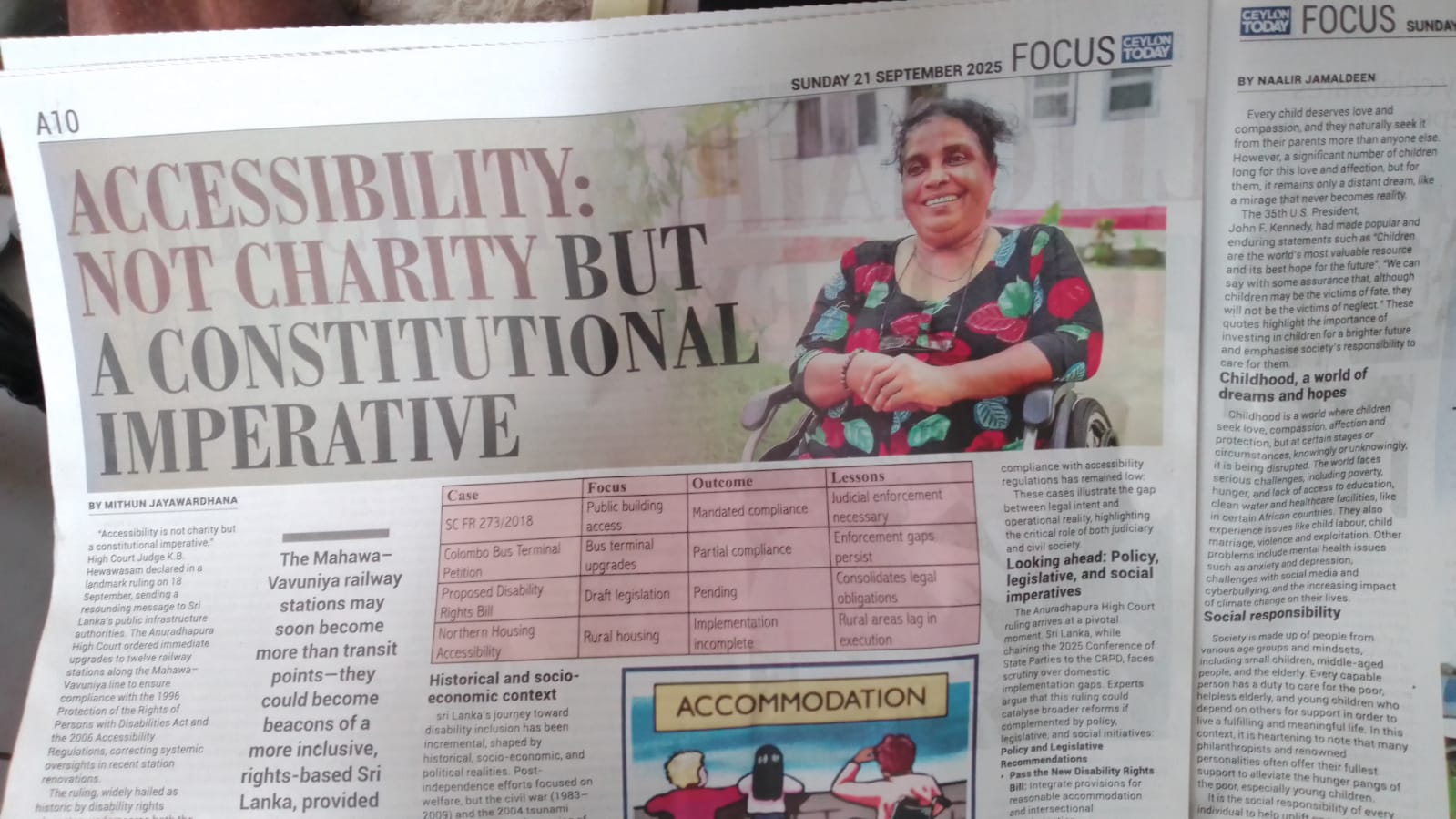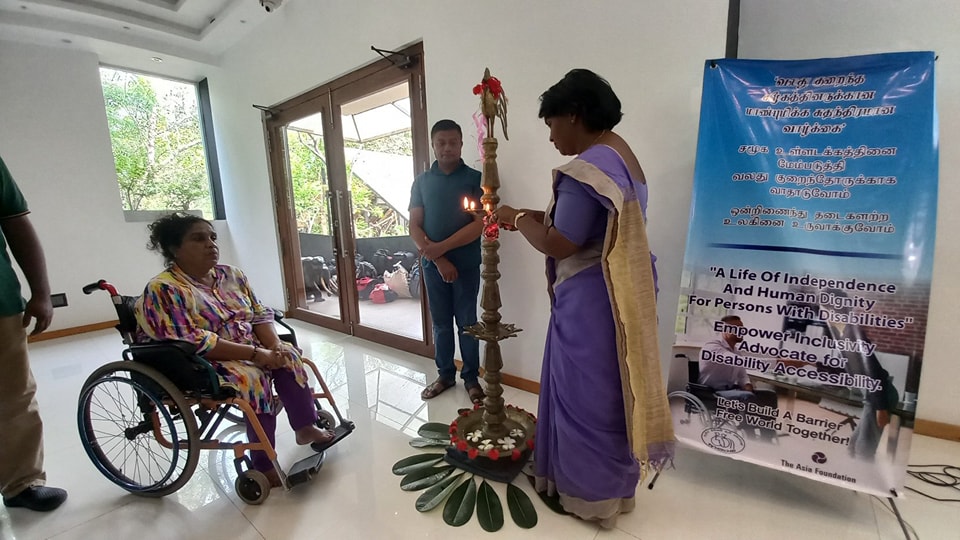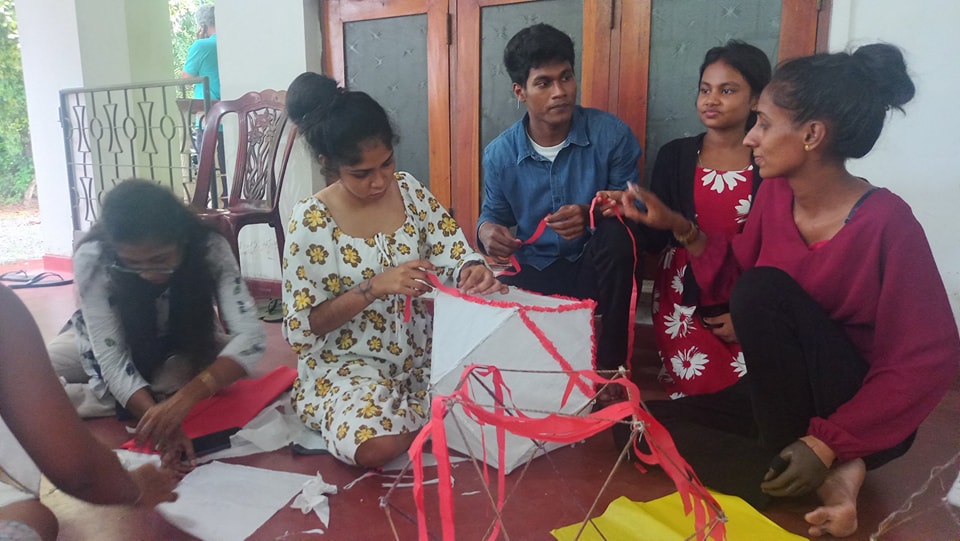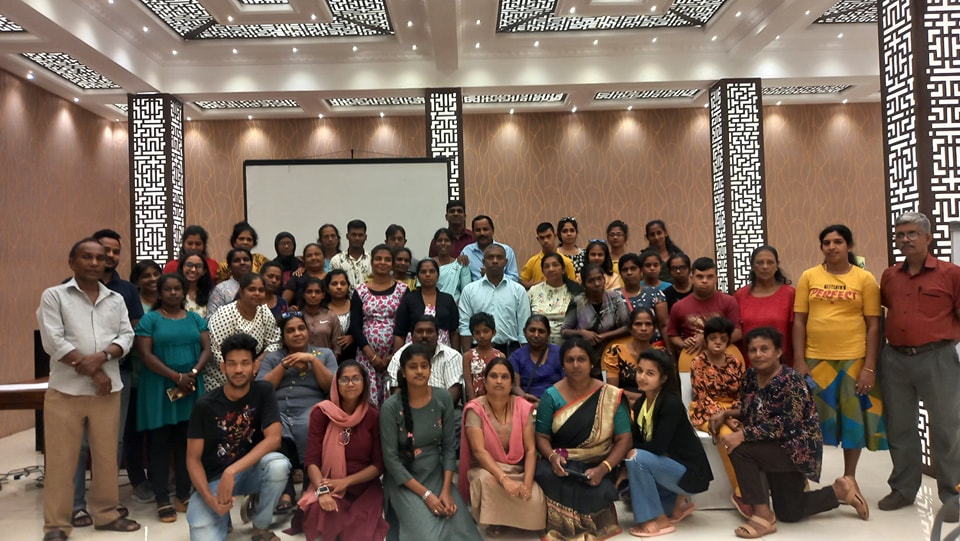Last week, something historic happened — not just for AKASA, but for every person with a disability in Sri Lanka.
On September 18th, the High Court of Anuradhapura ruled that railway stations on the newly modernised Mahawa–Vavuniya line must be accessible to all people with disabilities. For years, we at AKASA — the Anuradhapura Association of Disabled Women — have been raising our voices about this. Too often, “development projects” roll out without thinking about us. Ramps are missing, toilets are impossible to use, ticket counters are out of reach. We’re left stranded, watching trains pass us by.
But not anymore. This ruling changes everything.
Why This Ruling Matters to Us
When our president, Narayana Gedara Kamalawathi, walked into court to challenge the Railway Department and the Ministry of Transport, some thought it was too ambitious. After all, how many times have accessibility promises been ignored in Sri Lanka?
But the judge didn’t just listen — he acted. The court ordered:
- All stations on the Mahawa–Vavuniya line must become barrier-free.
- Future railway budgets must prioritize accessibility.
- The Railway Department must create a proper action plan and report back to court.
- And — in a first — the court awarded ₨ 1 million in compensation to AKASA.
For us, that compensation isn’t just about money. It’s recognition. It says: our rights matter, and when they’re violated, the system must answer for it.
More Than Just a Legal Win
This is not just about trains. This is about dignity, independence, and the right to move freely in our own country.
- For the disability movement: It’s proof that the law is on our side.
- For disabled women: It’s proof that we can lead, organize, and win.
- For the government: It’s a wake-up call — accessibility is not optional.
We know challenges lie ahead. Implementation won’t be easy. Budgets, construction, bureaucracy — they can all drag on. But with this ruling in hand, we now have a tool to hold authorities accountable.
Voices and Coverage
We’re not alone in this fight — the news has spread widely:
- AsiaNews report (English)
- Helakuru / Esana article (Sinhala)
- 🎥 Video coverage on YouTube
Seeing our story appear on these platforms reminds us that what happened in court isn’t just local news — it’s part of a global struggle for disability rights.
Our Next Steps
At AKASA, we are celebrating — but also planning. Our role doesn’t end with the judgment. Now we need to:
- Monitor the upgrades to make sure they really happen.
- Share stories from our members as stations begin to change.
- Push for accessibility in all public transport, not just one railway line.
We invite you, our readers and supporters, to join us. Share the news, talk about it in your communities, and remind everyone that accessibility is not a luxury — it’s a right.
Final Thoughts
When Kamalawathi said after the ruling, “This gave me strength,” she wasn’t just speaking for herself. She was speaking for every disabled woman, man, and child in Sri Lanka who has ever felt excluded from public life.
This victory belongs to all of us. And it’s only the beginning.
Together, we will keep pushing — until no train, bus, school, or office door in Sri Lanka is closed to us.
— Posted by an AKASA member ✊




